- 08 Jan 2024

The Role of Analytics in the Travel Industry

Consumer choices have markedly changed in the modern era, shifting significantly to modern digital means from conventional ticketing outlets. Smartphones have revolutionized the convenience of travel, enabling individuals to plan and book entire travel journeys effectively with a few clicks. Of course, this digital transformation goes beyond just ticketing, asserting a massive change in consumer behavior towards a more streamlined, technology-driven travel planning and booking process.
In 2022, online sales channels dominated the world travel and tourism market, contributing over two-thirds of the estimated $475 million. It is further predicted that by 2030, the market will have surpassed $1trillion. In conjunction, the realms of service excellence and big data have seen a gradual rise. Therefore, these online bookings serve as rich sources of data collection and analytics.
Big data and analytics in travel
Data analytics play a huge role in the highly competitive travel industry. Travel companies are looking to extensive data, including passenger preferences, booking patterns, and more, to optimize their businesses. Big data can predict and provide exactly what the client requires, as well as identify areas for improvement.
Travel companies can use data analytics to look at buying patterns in real-time, offer dynamic pricing alternatives, augment customer service, and anticipate issues by drawing the right inferences from the analysis. Agencies can also offer personalized packages and tailor-made services to increase client loyalty.
In the travel industry, particularly, data analytics offers an opportunity for providers to shift from a reactive to a more responsive approach. Businesses can project and reshape their operations based on analysis, especially at a time when customers are calling for more efficient and customized services. In a competitive world, however, travel companies must seize every opportunity they find to stay ahead of the race.
Benefits of data analytics
- Improved customer experience
- Projections and insights
- Better pricing structures
- Enhanced operational efficiency
- Risk Management
Forward-thinking organizations in the travel sector use data science, machine learning, and analytics constructively, even to create custom software that infers for them.
TOP 4 Travel Analytics Use Cases
Tools to forecast fares
The costs of lodging and travel vary according to the chosen supplier. However, keeping track of these manually can be a tedious undertaking. As a result, the travel industry is always on the lookout for intelligent solutions that can track and promptly notify users about fresh discount availability. For instance, a sophisticated forecasting technology accessing vast amounts of past pricing data can provide projections after conducting a thorough analysis. Future price changes may be predicted based on demand, seasonal patterns, airline promotions, and other variables.
Managing Disruptions
It takes a lot of advance planning and feedback, particularly from customers, to overcome issues that might arise during travel. Disruption management, on the other hand, solves actual problems on the go - it resolves problems encountered by travelers during their journey. The tool can be primarily employed in business and corporate travel where prompt task execution is necessary. For instance, the likelihood of experiencing a volcanic eruption or hurricane is extremely low - however, there is a real possibility of travel interruption due to these natural causes, where flights may be canceled or delayed.
In the realm of travel business operations, being stranded when one should be en route to a destination poses a considerable risk. The potential repercussions extend beyond mere inconvenience, translating into substantial financial losses and detrimental effects on the overall organizational performance.
Customized offers for loyal customers
The tourism and hospitality industries are known for their loyalty programs. Statistics indicate that in 2016, there was a 13.1% increase in hotel loyalty program members or an addition of around 344 million members. Travel companies can apply all the historical data from loyalty programs to AI-based customization, which will help memberships and allegiances rise.
Besides, to reduce attrition rates, travel companies must prioritize their most valuable clients and members within their loyalty programs. This is also another area where machine learning can be extremely helpful. It might not be enough to provide customers with offers based on past behaviors and metadata. It is the accuracy of forecasts that matters, where historical and real-time data must be combined to make predictability and offer management extremely easy
Sentiment analysis
Sentiment analysis is a novel and effective method of determining precisely what your customer desires. - you can get to know this by conducting review analyses of posts and travelogues to identify their true requirements. Most of the tourists share their trip experiences on social media and provide reviews of services using smartphones. There are several examples of such data available online on other popular platforms.
Brands must take the initiative to examine this vast collection of insightful data to enhance their offerings. All brand-related reviews can be analyzed using computational power and underlying machine-learning approaches.
Big data in travel - Looking ahead
One of the most exciting areas in travel is data science and analytics, which has the potential to revolutionize the travel industry. There are various types of data available, such as customer feedback, social media posts, geospatial data, and other external forms. While challenges to data privacy cannot be ignored, governance is crucial in overcoming these hurdles to bestow effective change management.
Recent Post
-
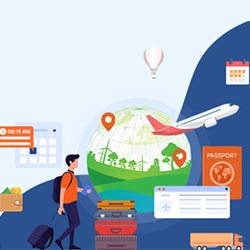
Sustainability in Travel : How travel technology drives eco-conscious tourism
25 Apr 2024
-
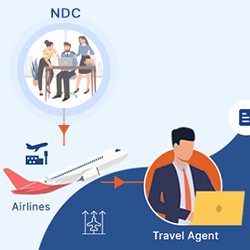
The Collective Power of NDC for Airlines, Agents, and Customers and its benefits in the travel chain
11 Apr 2024
-
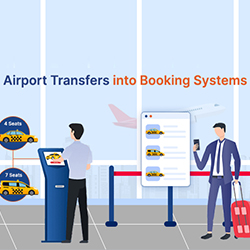
Streamlining Travel Experiences: The Importance of Integrating Airport Transfers into Booking Systems
27 Mar 2024
-
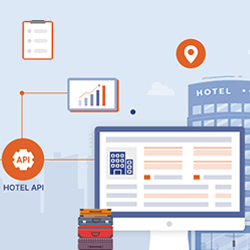
Hotel API Integration: Why it’s important for travel businesses
18 Mar 2024
-
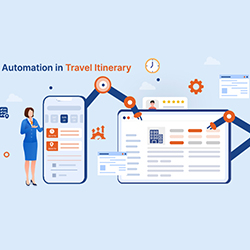
Automate the itinerary building process 5 reasons why travel agents need a travel itinerary tool
27 Feb 2024
-
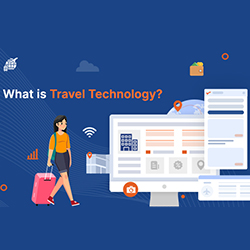
What is travel technology? An overview and its role in the travel / tourism industry
12 Feb 2024
-
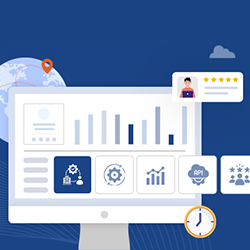
Why Every Travel Agent needs an Online Booking System in the Modern Digital Age
18 Jan 2024
-

The Role of Analytics in the Travel Industry
08 Jan 2024
-

How ChatGPT can improve the Travel and Tourism sector with it’s AI capabilities
26 Dec 2023
-

AI-powered Journeys: How AI is Reshaping the Travel Landscape this Holiday Season
22 Dec 2023
-

The Crucial Role of an Automated Mid-Back Office Solution for Streamlining Travel Operations
11 Dec 2023
-
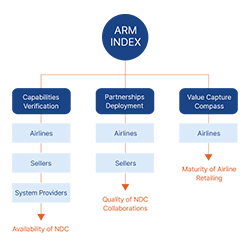
A Guide to IATA ARM (Airline Retailing Maturity) index
30 Nov 2023
-
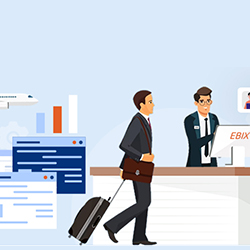
A Guide to Corporate Travel Management
16 Nov 2023
-
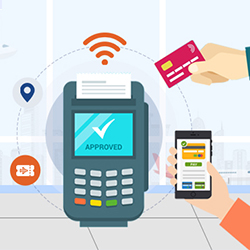
The Role of NFC in the Travel Industry
02 Nov 2023
-

World Tourism Day 2023: Unveiling the Future of Travel Technology
27 Sep 2023
-
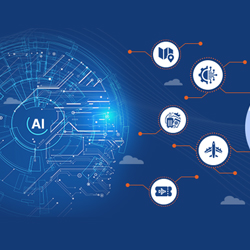
How is AI emerging in the travel industry?
21 Sep 2023
-
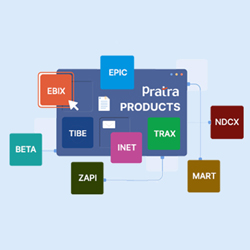
Pratra’s Innovative Travel Technology Products
04 SEP 2023
-

The Rise of Robots in Travel Industry and its Role in Enhancing Customer Experience
13 AUG 2023
-
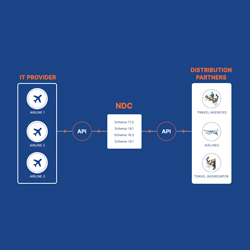
Difference between Conventional APIs and NDC APIs
01 AUG 2023
-
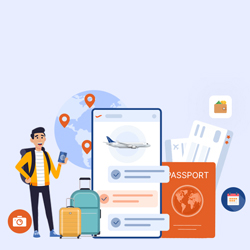
What is Travel API, and how can it help your business?
03 JUL 2023
-

Using AI to Empower Travel Advisors
05 Jun 2023
-

Top 5 Benefits of AR/VR Technology in the Travel and Tourism Industry
17 May 2023
-

Facial Recognition Technology and Contactless Check-ins in Modern Airports
05 Apr 2023
Let’s connect!
Our expertise is here at your disposal. We can’t wait to make use of it and help you succeed.

